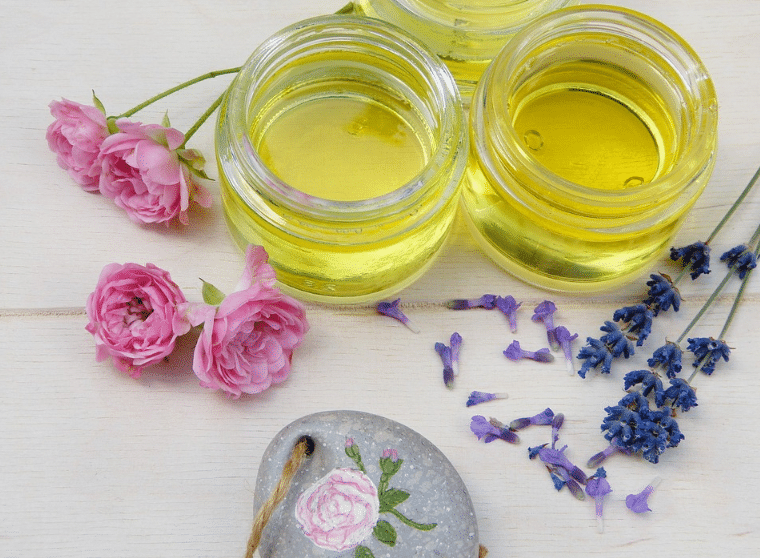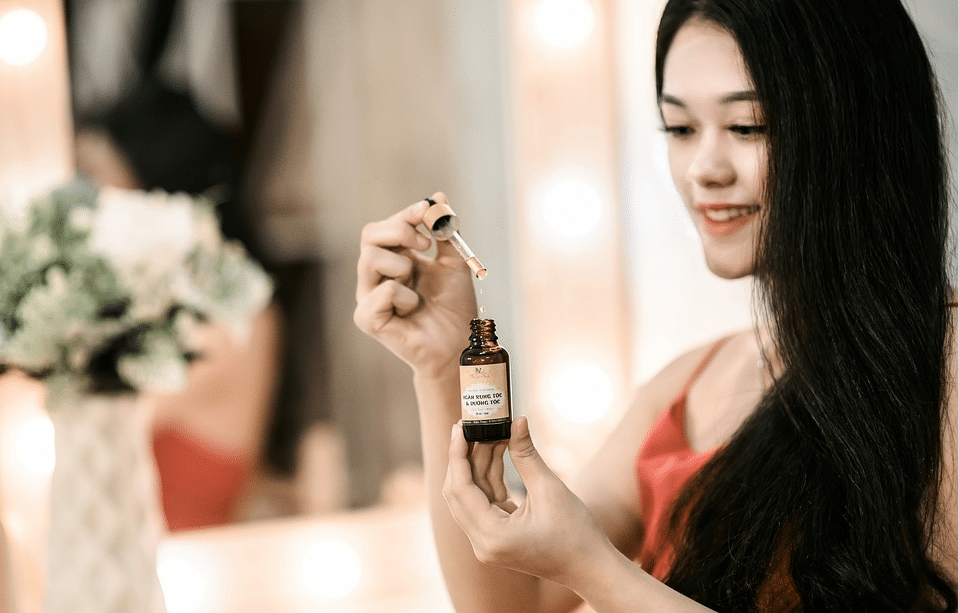Used since the dawn of time, oils are gradually making a comeback in our skin care. Ultra-beneficial and effective, they have the advantage of preserving the skin’s hydrolipidic film (its natural barrier). In addition, they retain water in the skin and fill it with beneficial vitamins and fatty acids… all without harmful petrochemical ingredients, preservatives and endocrine disruptors if they are chosen organic! We shunned them for a long time thinking that they made them shine like a donut left in the sun. Fortunately, many people today understand that the most important thing is to choose a vegetable oil that suits us and to apply it correctly.
And precisely, if finding the ideal oil is not complicated (see our suggestions below), it is its application which often poses a problem. So how do you help the skin absorb it? We give you the ultimate secret so that vegetable oil does not stay on the surface and works!
Which vegetable oil to choose depending on your skin type?

First of all, always favor natural, organic and non-comedogenic oils (which do not clog the pores of the skin). Also, if possible, prefer to buy them virgin and from a first cold pressing so that they retain their richness in good nutrients. And of course, take your skin type into account, otherwise the absorption will not be great and it will not help your skin.
For dry skin: sweet almond, macadamia, avocado, wheat germ
Oily or acne-prone skin: jojoba, hazelnut, nigella grape seeds, sea buckthorn
Normal to mixed: jojoba, macadamia, grape seeds
Mature : evening primrose, borage, camellia, rosehip, apricot kernels
Sensitive and irritated: calendula, camellia, sesame, hemp, sweet almond
Dull : carrot, apricot kernels, buriti
How to apply your vegetable oil and ensure that it will penetrate well?

First of all, clean your skin as usual. Then we moisten it slightly with a mist of thermal water. This simple gesture will allow the active ingredients of the vegetable oil to pass into the skin. Indeed, this opens poreswhich allows the skin barrier to better allow treatment to pass through. After this, all that remains is to heat three or four drops of oil between your fingers before applying them gently to the face. So, the oil will not stay on the surface ! Besides, you can do the same for the body. Apply your cream to skin that is still slightly damp and softened directly after getting out of the shower. It is THE best tip against crocodile skin !
The extra thing:
To go further, you can replace the thermal water with a floral hydrosol mist or spray. So you can choose it according to your needs and add something extra to your routine! Here are examples: mature skin = pink; oily skin = tea tree, lavender; enlarged pores = grapefruit; dry skin = orange or cornflower; etc.
Source
Related articles:


